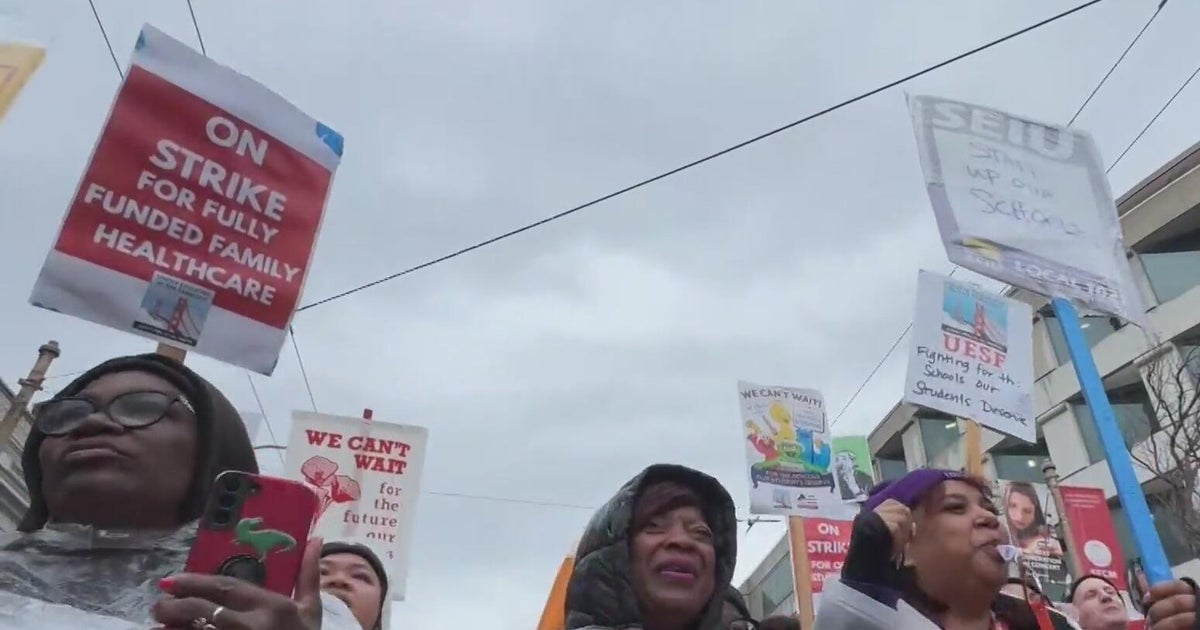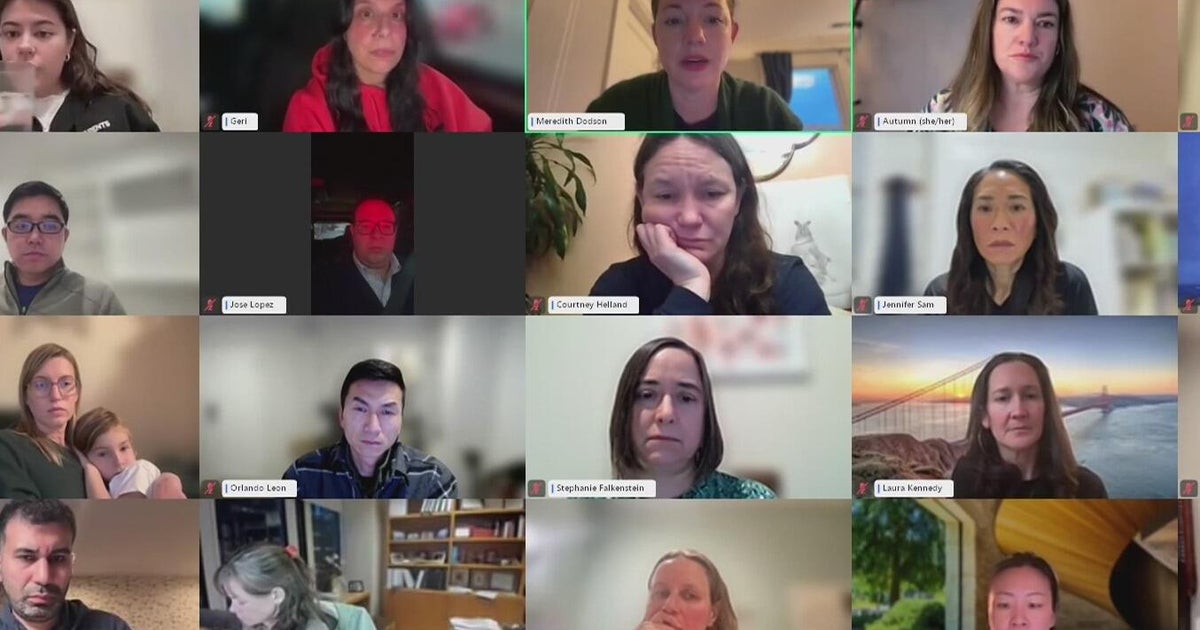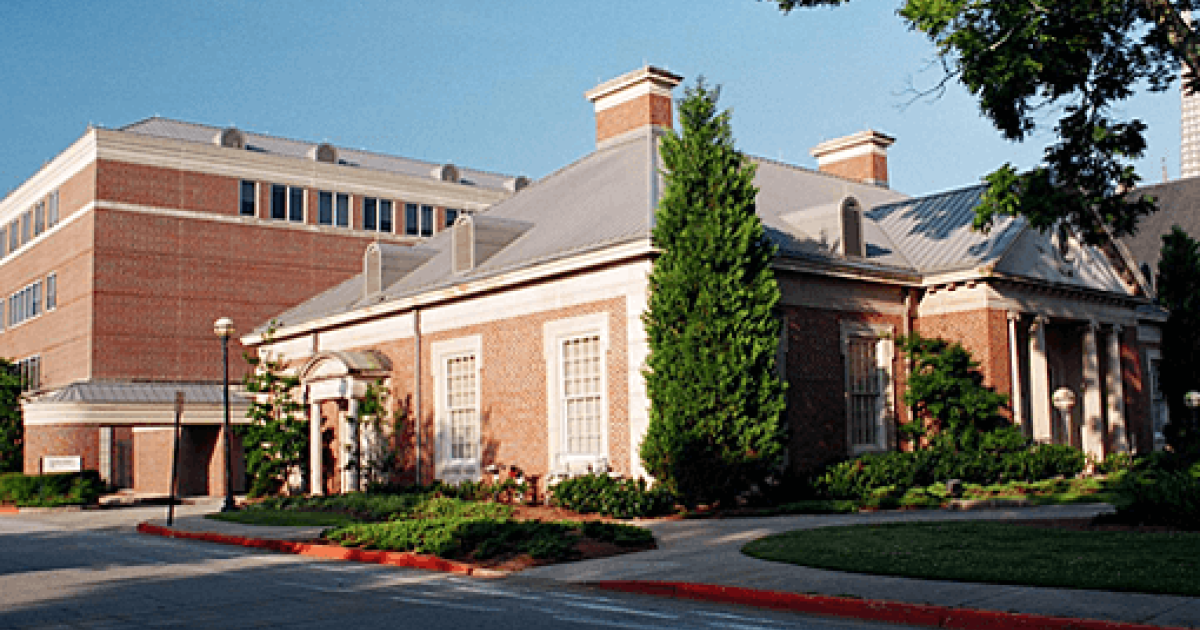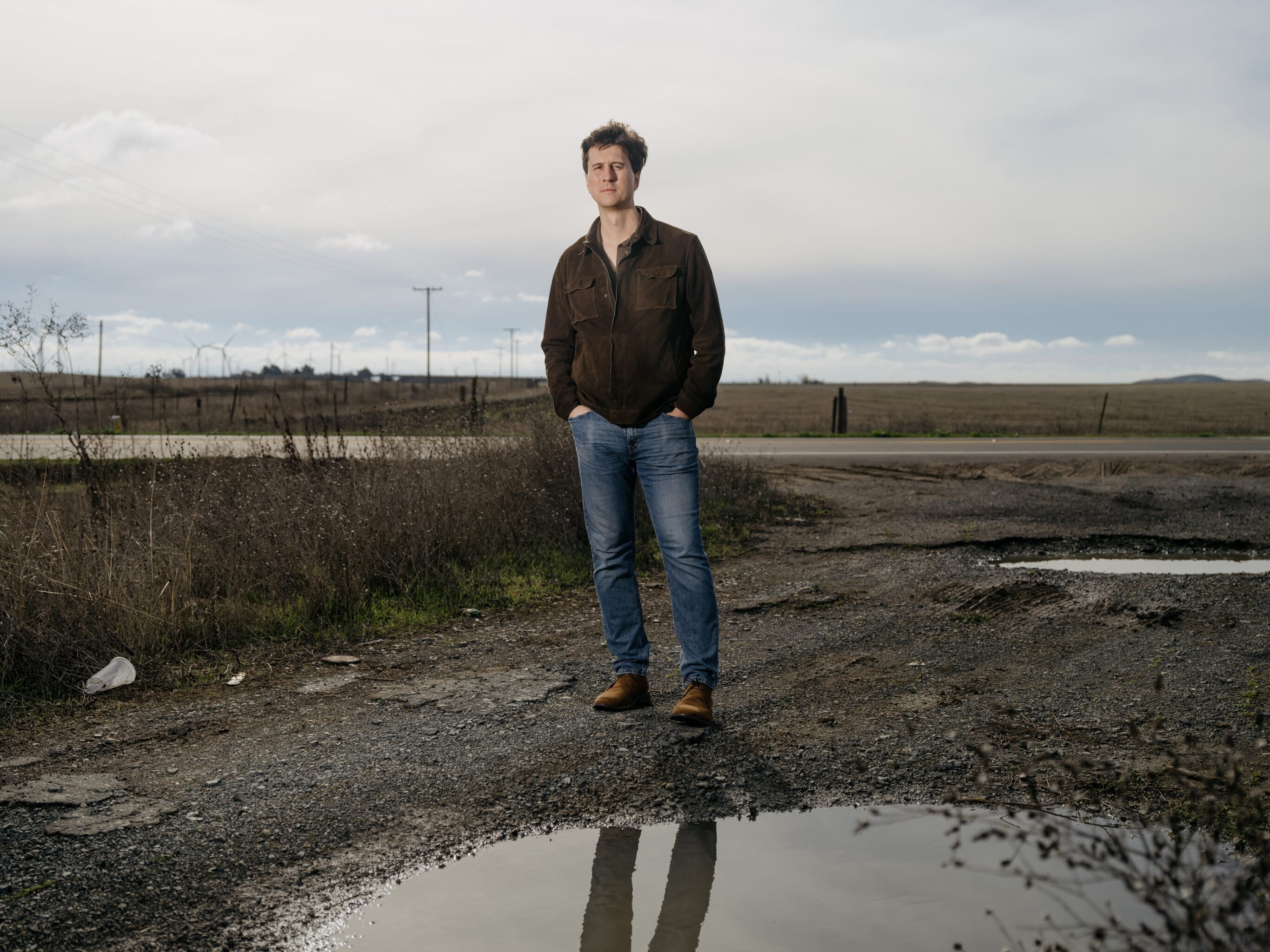Transcript: Tony Thurmond on "Face the Nation," April 4, 2021
The following is a transcript of an interview with California Public School Superintendent Tony Thurmond that aired Sunday, April 11, 2021, on "Face the Nation."
MARGARET BRENNAN: We go now to California State Superintendent of Public Instruction Tony Thurmond. He joins us from San Francisco. Good morning to you.
CALIFORNIA SUPERINTENDENT OF PUBLIC INSTRUCTION TONY THURMOND: Good morning, MARGARET. Thanks for having me on.
MARGARET BRENNAN: Thank you for joining us. Well, California is the last state in the country in terms of reopening schools, but elementary schools in L.A. tomorrow are going to be returning to in-person learning. Why did it take this long? Why didn't the governor really force things to reopen?
THURMOND: Well, if you think about the complexities of our state, we have, you know, 6.2 million students. You mentioned our largest school district, Los Angeles Unified, is opening tomorrow with more than 600,000 students. And if you think back to the winter, we had one of the biggest spikes anywhere. I mean, we've lost more than 60,000 Californians. We have 3.7 million cases. This has been complex. And everyone has been trying to find a way to get our schools open. We're pivoting now and we're at a place now where we see 9,000 of our 10,000 schools are either open or found a way to get open. So we're moving forward--
MARGARET BRENNAN: Mhm.
THURMOND: --by giving our schools what they need, vaccines and rapid COVID tests and ventilation and resources to get open safely and to stay open safely
MARGARET BRENNAN: In terms of staying open, as I asked Governor Whitmer, Pfizer has requested FDA approval to give their vaccine to 12 year olds and up. The CDC director's hopeful kids will return for in-person instruction in the fall. Will they do that in California and will you mandate the vaccine?
THURMOND: Well, this week, our vaccines will be, you know, now have eligibility for anyone 16 and over.
MARGARET BRENNAN: Mhm.
THURMOND: And so we know that will be important as we look to see more increases of schools that open for high school age students. And so we know that right now--
MARGARET BRENNAN: But it's not mandated for them.
THURMOND: Well, our governor hasn't mandated that, but making vaccines available has been a game-changer in our state. We've just surpassed providing 22 million vaccine doses in our state, more than 400,000 to our educator workforce. And so these are the keys that allow us to get our schools open and keep them safe. Of course, we need everybody to continue to wear a mask--
MARGARET BRENNAN: Yeah.
THURMOND: --and to social distance and as we monitor these variants to make sure that we can stay open safely in our schools.
MARGARET BRENNAN: Will you consider it?
THURMOND: Well, my office doesn't have the power to mandate. We have a thousand school districts,--
MARGARET BRENNAN: But you have the power to consider it--
THURMOND: Unfortunately, as--
MARGARET BRENNAN: And recommend.
THURMOND: I do have the power to recommend using things like vaccines and COVID tests. You know, these are ultimately individual choices that our families are going to have to make about whether or not their children will take the vaccine. You know, as a parent, I certainly would encourage it. As someone who has recently had my vaccine, I've gone on live to do live webinars for people to see that it's safe, that it's pain free, and that it can make a difference in keeping us safe. And with all these variants that we're seeing coming to the US, we know that the vaccines are among the most important things that we can do to keep every one of our 40 million Californians safe.
MARGARET BRENNAN: I want to ask you about the kids as they come back into instruction. You spoke powerfully about your own personal experience growing up as a child of a single mom who you lost at a very young age. There was a study that was published this week talking about the 40,000 children in this country who have lost a parent to COVID-19. 20% of those kids, according to this JAMA study, are African-American. In California, how do you plan to deal with this particular part of the inequity problem?
THURMOND: The first thing we do when our students return is to really check in on their social and emotional well-being, making sure that they have mental health supports. This has been hard on our kids all across the nation. We've seen a high rate of depression and we know that we have to first and foremost provide social emotional supports. Second, with all due respect to the hard work of so many educators trying to support our kids, we- we literally in this country moved into distance learning overnight because we had to keep people safe. And let's face it, education systems weren't built for this. And so with all due respect to those efforts, we know that many of our kids have had unavoidable impacts. So we'll provide them more tutoring, more supports. We've got to make sure that more of our kids have computers in this nation. We have so many students, including students of color, who go without computers and who've gone without access to high speed Internet in our state. We've worked to provide hundreds of thousands of computing devices and we've got all of our Internet companies to commit to providing Internet at low cost to our students. At- at the same time, I want to say that many of our families are still asking to remain in distance learning. If you look at nationwide across the country, you know students of color--
MARGARET BRENNAN: Why?
THURMOND: --are asking to remain in distance learning. That tells me they still have concerns about safety. And that's why I think it makes sense to go slowly, to be cautious, to get open, to show folks that this can be done and to use important resources like what we're using in California. We've secured with the governor and others 5 million rapid COVID tests that give you results about someone being positive within 15 minutes. That kind of awareness gives you a sense about whether or not it's safe to reopen your school campuses. And we're using them throughout the state of California.
MARGARET BRENNAN: To make up for lost time, do you need to have a summer semester?
THURMOND: We are planning to use our summer school programs to provide more enrichment, but that's not the only way. At the end of the day will assess where every student enters and look for ways to offset any learning gaps that have been exacerbated during the pandemic. That means a lot of tutoring. That means after school programs, that means specialized training for teachers and educators and really working closely to engage our families to make sure we're hearing them --
MARGARET BRENNAN: Mhm.
THURMOND: We're providing supports to them and to make sure that our students have access to high speed Internet.
MARGARET BRENNAN: And quickly, given what we're seeing in the Midwest. Do you still intend to hold youth sports? Because that's being seen as a way the virus is being transmitted, transmitted?
THURMOND: Our state has opened for sports. Many of our school districts are using the rapid COVID tests to have awareness for our athletes. What we're planning to do is to continue to monitor these new variants and to make sure- variants and to make sure that we are doing the things that we know that will keep us safe, using face masks and social distancing. We're going to have to continue to do these things for quite some time.
MARGARET BRENNAN: Superintendent, thank you very much for your time this morning. We'll be back in a moment.



